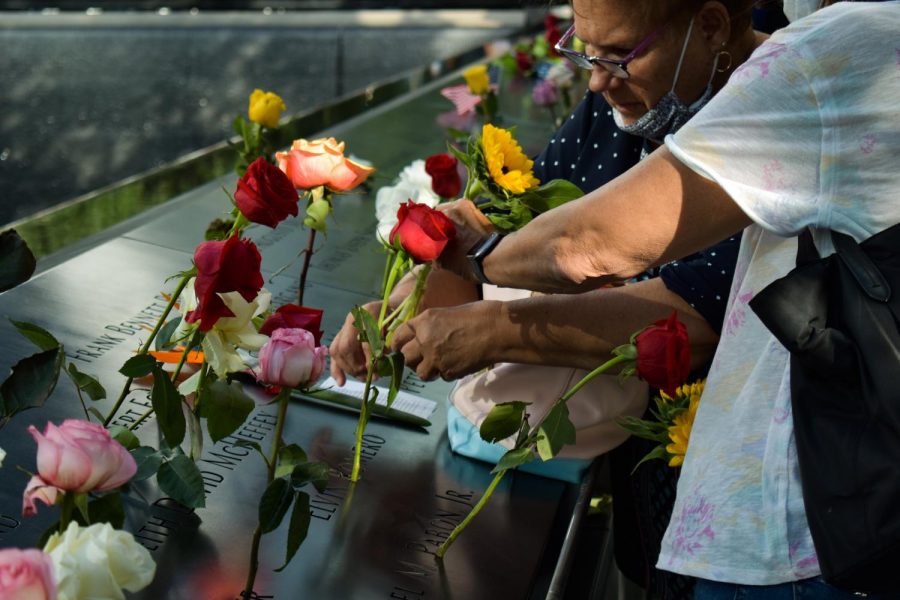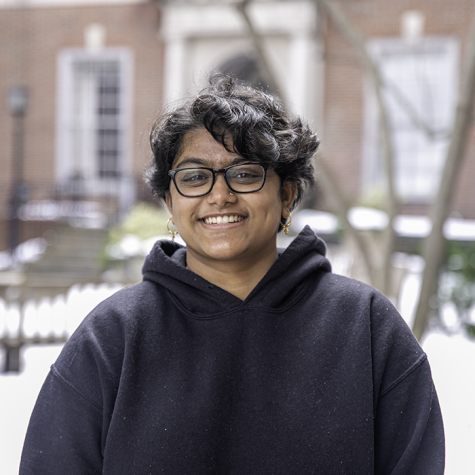Opinion: NYU needs to protect Arab and Muslim students on the anniversary of 9/11
As the 20th Anniversary of 9/11 approaches, vulnerable populations are bracing themselves once more for the anniversary of one of the most infamous terrorist attacks. What will NYU do to protect students who are worried about what this anniversary means for their safety?
The 20th anniversary of the terrorist attacks on September 11, 2001 is approaching this year. NYU has not done much to protect its Muslim, Arab, and South Asian students from racism, xenophobia, and Islamophobia, many of whom are international students who may now know how to protect themselves. (Staff Photo by Trace Miller)
September 2, 2021
The world changed on Sept. 11, 2001. Following the terrorist attack on the World Trade Center, former President George Bush announced a War on Terror, created the Department of Homeland Security and passed the controversial Patriot Act. From the Transportation Security Administration to Guantanamo Bay, the United States built a surveillance state with one goal — identifying and removing any and all threats to the nation.
The events of 9/11 violently altered the realities of Muslim Americans, South Asian Americans and Arab Americans. In 2000, the Federal Bureau of Investigation recorded 28 hate crimes against Muslims. In 2001, the FBI recorded 481. Although the number dropped in the following years, it never returned to the lower levels reported prior to 9/11 — and despite an overall average decrease in hate crimes after 2001, anti-Muslim hate crimes did not follow the general downward trend. While these numbers reflect the manifestation of interpersonal beliefs intertwined with racism, the United States as a nation was also complicit in both the targeting and surveillance of certain identity groups. Since 2002, 779 men and boys have been detained at Guantanamo. At least 21 were merely children when taken. Most of these people were innocent, their arrest being a byproduct of high U.S. bounties pressuring poor Afghan and Pakistani villagers to turn in their neighbors, brothers and children in exchange for financial freedom.
In 2020, the United States saw another surge in hate crimes — the highest number since 2008. Almost 62% of these hate crimes were motivated by the race or ethnicity of the victim. In particular, hate crimes against Black and East Asian populations rose due to increasing racist beliefs regarding the Black Lives Matter movement and COVID-19. The 20th anniversary of 9/11 also follows the removal of U.S. forces in Afghanistan and the Taliban’s return to power. Anti-Muslim rhetoric is already being used to urge the United States to reoccupy Afghanistan, as well as to bolster arguments for the inherent danger of Muslim men.
New York City was home to more than 768,000 Muslim Americans, as of 2016 — the largest population of Muslims in any city in the country. NYU has a substantial Muslim student population as well, in addition to its South Asian and Arab student populations. In fact, international students from India constitute the second-largest international student population at NYU. New York City is also home to Ground Zero, a link to the attack and a symbol of what it means for various Americans.
The 20th anniversary of 9/11 comes at contentious times. Rising hate crimes, the return of the Taliban in Afghanistan, and an impending refugee crisis are fuel to the fire of racism and Islamophobia. A big anniversary of such a momentous event can only fan those flames, resulting in a dangerous environment for brown and Black students at NYU.
It is key that NYU protects its Muslim, Arab and South Asian students. Many of these students are international students who might not know what to expect or how to protect themselves. NYU needs to be vocal in its support of its many Muslim student organizations, as well as its general brown and Black student populations. It must foster a space where we can acknowledge the devastation of 9/11 without using rhetoric that even subconsciously promotes racism, xenophobia or Islamophobia. It is also important that NYU does not use the New York City Police Department or armed campus security to enforce these necessary protections. The law enforcement systems in the United States have had an outsized role in the profiling and detention of, and violence against, vulnerable brown and Black people.
It is imperative that NYU does its part in protecting its students. Now is the test of how much NYU truly cares about diversity. Will the university address the dangers many Muslim, brown and Black students face. Or will they turn to performative activism once more?
Contact Srishti Bungle at [email protected].


























































































































































